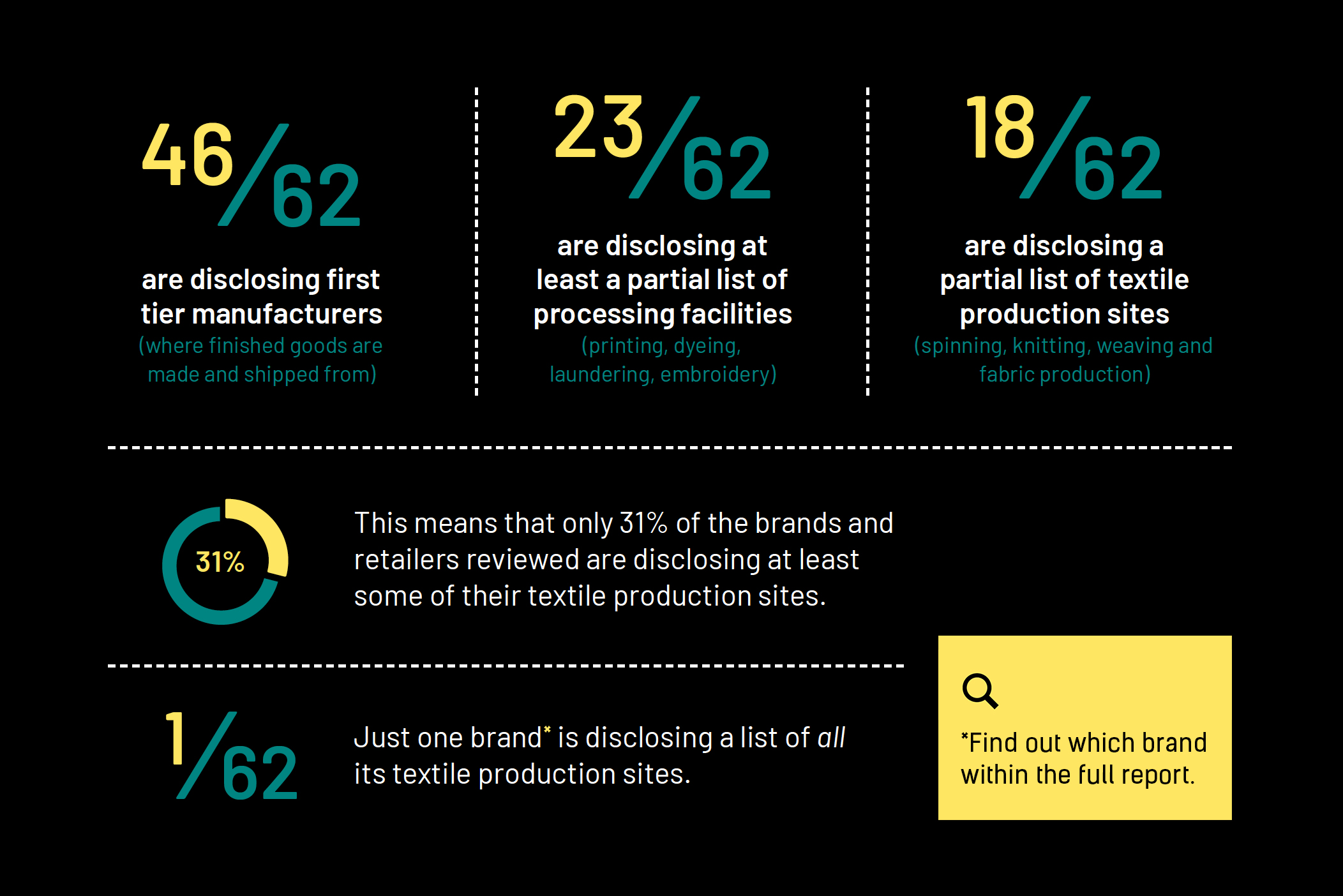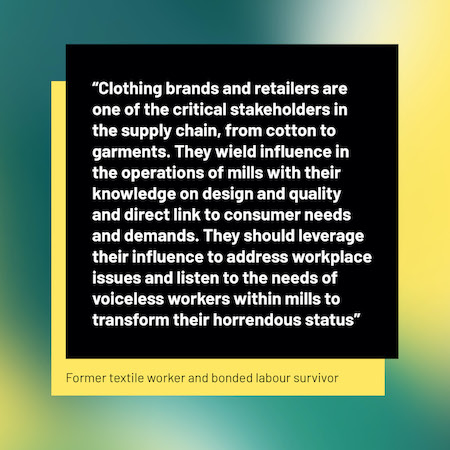Out of Sight: A call for transparency from field to fabric
Supply chains in the global garment and textiles industry are long, complex, fragmented, continuously evolving and notoriously opaque. Fashion Revolution has conducted new research into the supply chain transparency efforts of 62 major fashion brands and retailers. The following report explores why greater transparency in the supply chain is needed to help put an end to exploitative working conditions in the places where fabrics and yarns are made.
READ THE REPORT
KEY FINDINGS

WHY IS TRANSPARENCY IMPORTANT BEYOND TIER ONE?
Supply chains in the global garment and textiles industry are long, complex, fragmented, continuously evolving and notoriously opaque. This is a problem because fragmented and opaque supply chains can allow exploitative and unsafe working conditions to thrive while obscuring who has the responsibility and power to redress them.
Currently, most supply chain disclosure by major brands and retailers covers their first tier manufacturers, where they tend to have direct business relationships with the suppliers that are involved in the final stages of production such as cutting, sewing, assembling and packing for shipment.
When you start to look further down the supply chain where fabrics are knitted or woven, textiles are treated and laundered, yarns are spun and dyed, fibres are sorted and processed and raw materials are grown and picked there remains a widespread lack of transparency.
WHAT IS THE TAMIL NADU DECLARATION?
This framework of action calls upon major fashion brands and retailers to help eradicate severe labour exploitation in textile spinning mills in southern India through reform across five areas:
 Goal 1 – Transparency: Expand supply chain transparency beyond tier 1 cut-and-sew operations by publicly disclosing the details of all textile, raw material manufacturing processes, and finished product facilities in the global supply chain.
Goal 1 – Transparency: Expand supply chain transparency beyond tier 1 cut-and-sew operations by publicly disclosing the details of all textile, raw material manufacturing processes, and finished product facilities in the global supply chain.
Goal 2 – Policy development and engagement: In Tamil Nadu, proactively support policy implementation efforts on minimum wages for textile workers, internal complaints committees, hostel registration, statutory employer benefits, registration of migrant workers and labour inspection.
Goal 3- Fair and equitable purchasing practices: Adopt responsible sourcing and purchasing practices on price and order placement, and take steps to consolidate the supply chain by creating stable, long-term relationships with tier 2 and 3 suppliers.
Goal 4- Worker-centred monitoring mechanisms: Instead of relying on third-party social audits, develop collaborative worker-centred, transparent and accountable mechanisms to monitor compliance with labour rights standards.
Goal 5 – Grievance mechanisms: Support civil society efforts to develop a collaborative grievance mechanism that provides effective remedy for mill workers in Tamil Nadu.
NEXT STEPS
Fashion Revolution will be periodically monitoring and reporting on brands’ efforts towards Goal 1 – transparency beyond the first tier.
DONATE
If you can, please support our policy and research work and help us to continue to campaign for a fair, safe and transparent fashion industry.
DONATE
